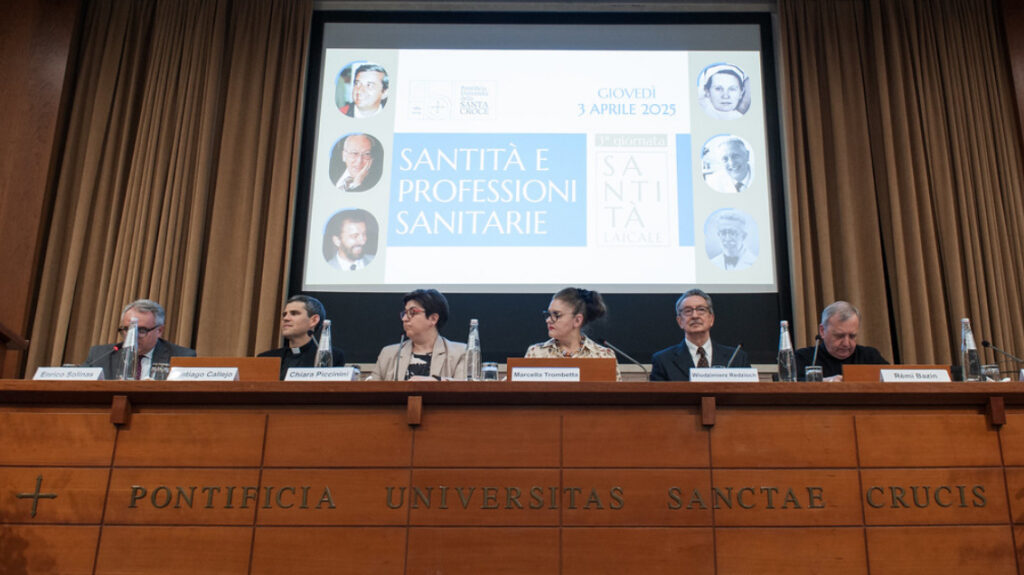Reflection by Monsignor Enrique Díaz: Dangerous Weapon
XXII Ordinary Sunday

Monsignor Enrique Díaz Díaz shares with the readers of Exaudi his reflection on the Gospel of this Sunday, September 1, entitled: “Dangerous Weapon”.
***
Deuteronomy 4, 1-2. 6-8: “They shall not add anything to what I command them… Fulfill the commandments of the Lord”.
Psalm 14: “Who will be pleasing in your eyes, Lord?”
James 1, 17-18. 21.22. 27: “Put the word into practice”
Saint Mark 7, 1-8. 14-15. 21-23: “They put aside the commandment of God to cling to the traditions of men”
Today we begin the month of September, a month of the Bible, a month of the living presence of Jesus, the Word of the Father, among us.
After several Sundays of reflecting on the sixth chapter of St. John, with “the smell of bread,” today we return to the Gospel of St. Mark, and suddenly we encounter a “smell of corruption,” in a passage where Jesus has a strong altercation with the scribes and Pharisees about traditions that Jesus describes as human, invented by those who are far from God even though they believe themselves to be very close to Him. In fact, a tradition will be valid only when it helps to observe the commandments of God, when it keeps the heart united to Him, when it gives life to the people. In essence, Christ offers a criterion and raises a question, both in those times and today: do our customs and traditions serve to mask our evils and disguise our selfishness, or do they serve to keep us faithful to God and give life to the people? Only in the second case will they have true value, and we must preserve them.
It seems that we forget the fundamental principles, and we want to transform the world from the outside, without transforming the interior of people, without a true conversion. There is no secret path that can lead us to true transformation when we remain in externals, make-up and deformations of reality. How many programs remain only in external beautification without touching the inner fibers for fear of commitment? Christ warns us with his strong statement that “evil comes from within the heart.” Crimes, adulteries, thefts, injustices, envy, defamation, are perversities of the heart even if they are disguised as customs, traditions or fashions.
Pharisaism and ritualism are not a matter that concerns the past, but a continuous temptation of the present time everywhere, even in people and institutions that start with the purest and most upright intentions. The Pharisaic way of thinking blocks the dynamism and strength of the gospel and turns it into rites, structures and customs that suffocate its spirit. Unfortunately, it is very easy to fall into this style of a religion that comes to calm our deep concerns and that numbs the desire for a coherent life. Today we can also live a superficial Christianity, with social celebrations with holy water, external and peripheral. On the contrary, Christ demands a Christianity that is a true personal response to the call of God and to the needs of our brothers. We cannot, and should not, lock our faith in a sacristy or silence it with a novena; it must go to the heart of life and energize every action of those who call themselves Christians.
Thus, Christianity is not just a medal to wear on the chest, nor a document that accredits us within the church, but it is, above all, an inner attitude and a force to live honestly in all moments of life. We will have to review whether our attitudes in the encounters of each moment are in accordance with what the gospel asks of us. It is not possible to call oneself a true Christian and embezzle community funds, play with justice, lie shamelessly. We cannot say that we listen to the gospel if we then make money our god, live with injustice and give all our efforts to pleasure. We are completely wrong when we pay more attention to external behavior than to internal care, when we care about formalities and not substance, when our traditions do not have their roots in the will of God.
Jesus’ criticism is very harsh when it comes to reviewing the concrete fruits that spring from within: “evil intentions, fornications, thefts, murders, adulteries, greed, injustice, fraud, debauchery, envy, defamation, pride and frivolity.” Does this spring from within us? Jesus’ wise warning is fully relevant in our complex and organized society. We must take care of the interior, not the superficial. All attempts to embellish and give a touch of social programs are fine, but if we do not go to the bottom, if we do not change unjust structures, if we do not change the heart of man, everything remains just good wishes. What does it matter to dress nicely when one has a rotten heart!
This conversion will lead us to concrete actions in every moment of our life. Being a disciple of Jesus implies living according to his criteria in all areas of our existence because we put our heart into everything. Faith is not a sack that is put on and taken off when entering the Church, but it is a personal experience that demands that we act in a coherent manner in every corner of our world. It is a false illusion to say that we are looking for a more just and humane society, if none of us are willing to reconvert and change our hearts, and we continue to cling to our traditions and privileges. Does the gospel influence every moment of our lives? Is it only an accessory, or does it spring from within us? What will we have to change?
Merciful Father, inflame us with your love and bring us closer to you, so that we can be consistent with our Christian commitment at every moment of our lives. Amen.
Related

I have ardently desired to eat this Passover with you: Fr. Jorge Miró
Jorge Miró
12 April, 2025
2 min

Pope Francis Sends a Message of Hope to the Young People of the UNIV 2025 International Congress
Exaudi Staff
11 April, 2025
5 min

“Highway to Heaven” Arrives in Rome: Carlo Acutis’ Musical Evangelizes with Art and Heart
Exaudi Staff
09 April, 2025
2 min

University of the Holy Cross: A Day on Lay Holiness
Wlodzimierz Redzioch
08 April, 2025
3 min
 (EN)
(EN)
 (ES)
(ES)
 (IT)
(IT)

